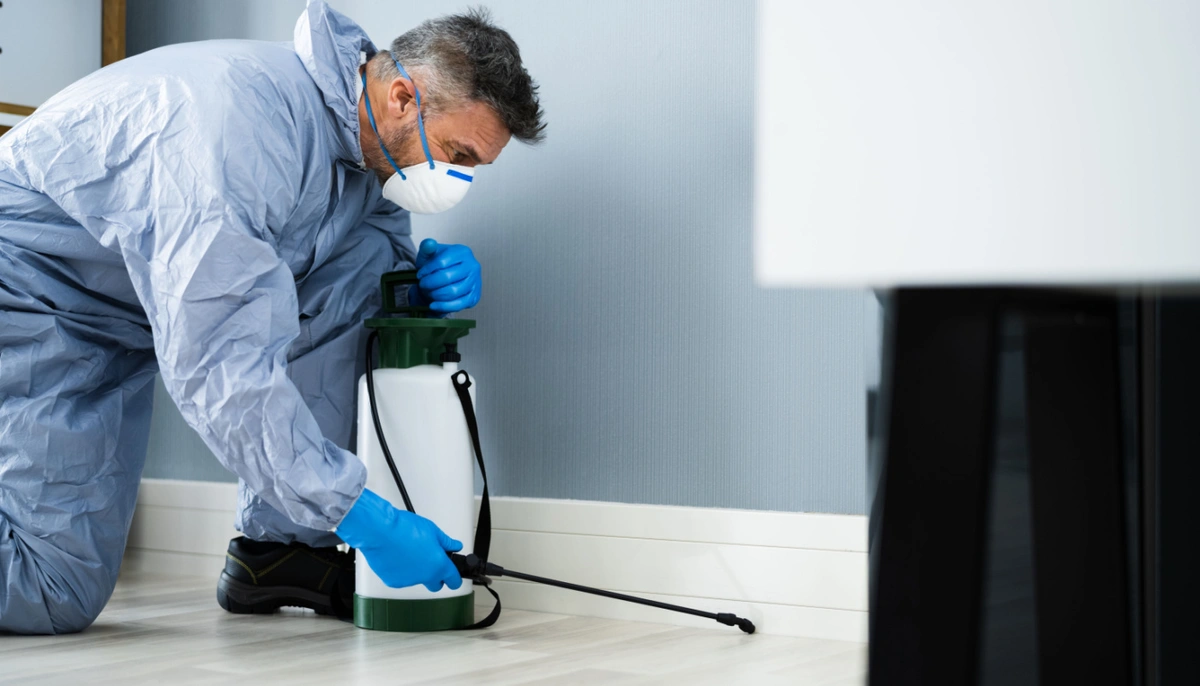When renting a property, dealing with pests can be a frustrating and often misunderstood issue. Both tenants and landlords have specific responsibilities regarding pest control, and understanding these can prevent disputes and ensure a safe, pest-free living environment. Effective pest management is crucial for maintaining a healthy home, and knowing when to seek professional Olathe pest control services can make all the difference. This guide will provide renters with essential information on their rights and responsibilities, reporting procedures, preventive measures, and more, ensuring they are well-prepared to tackle any pest-related issues.
Tenant and Landlord Responsibilities Regarding Pest Control
1. Landlord Responsibilities
- Property Condition: Landlords are typically responsible for ensuring the property is habitable, which includes being free of pests at the start of the tenancy.
- Pest Prevention: Regular maintenance and inspections to prevent infestations fall under the landlord’s duties.
- Professional Services: If an infestation occurs due to structural issues or natural factors, landlords are usually required to hire professional pest control services, like Kansas City Pest Control.
2. Tenant Responsibilities
- Cleanliness: Tenants must keep their living areas clean and free of food debris to prevent attracting pests.
- Reporting Issues: Promptly reporting any signs of pests to the landlord is a tenant’s duty to prevent the problem from escalating.
- Preventive Measures: Tenants should take basic preventive steps, such as proper waste disposal and not leaving standing water around, to minimize the risk of infestations.
The Process of Reporting Pest Problems to Landlords
1. Document the Issue
- Evidence Collection: Take photographs or videos of the pests and any damage they may have caused. This documentation is essential for reporting the issue accurately.
- Record Dates: Note when the infestation was first noticed and any steps taken to mitigate the problem.
2. Notify the Landlord
- Formal Communication: Send a written notice (email or letter) to the landlord detailing the pest issue, accompanied by the collected evidence.
- Follow-Up: If there is no response within a reasonable time frame, follow up with another written notice or a phone call.
3. Allow Access for Inspection
- Coordinate Visits: Be available to allow the landlord or a pest control professional to inspect the property and assess the situation.
- Cooperate Fully: Provide access to affected areas and assist as needed to facilitate a thorough inspection and treatment.
Lease Agreements: Important Clauses Related to Pest Control
1. Responsibility Clauses
- Initial Condition: The lease should state that the property is pest-free at the start of the tenancy.
- Maintenance Obligations: Clauses may outline whether the tenant or landlord is responsible for ongoing pest control maintenance.
2. Reporting Procedures
- Notification Requirements: The lease should specify how tenants should report pest problems and the expected response time from the landlord.
- Access for Treatment: Clauses might detail the process for granting access to pest control professionals.
3. Costs
- Who Pays: The lease should clarify who is responsible for the costs of pest control services, especially if the infestation is not due to tenant negligence.
- Shared Costs: In some cases, the cost might be shared between the landlord and tenant, depending on the source of the infestation.
When and How Renters Should Hire Professional Pest Control
1. When to Hire Professionals
- Severe Infestations: If the pest problem is extensive or persistent despite initial efforts, it’s time to call in professionals.
- Health Risks: For pests that pose significant health risks, such as bed bugs or rodents, professional intervention is necessary.
2. Choosing a Service
- Research: Look for reputable pest control companies with good reviews and proper licensing, such as Kansas City Pest Control.
- Consult Landlord: Notify the landlord before hiring a service, as they may have preferred vendors or cover the cost.
3. During the Treatment
- Preparation: Follow any preparation guidelines provided by the pest control company, such as vacating the premises or covering food and belongings.
- Follow-Up: Ensure any follow-up treatments are scheduled and completed as recommended by the professionals.
Temporary Pest Control Solutions Until Professional Help Arrives
1. Traps and Baits
- Mouse Traps: Use snap traps or live traps for rodents.
- Insect Baits: Place bait stations for ants and cockroaches in affected areas.
2. Natural Remedies
- Vinegar Solutions: Spray a mixture of vinegar and water to repel ants and clean surfaces.
- Diatomaceous Earth: Sprinkle food-grade diatomaceous earth around baseboards and entry points to kill insects.
3. Barriers and Deterrents
- Peppermint Oil: Use peppermint oil as a natural deterrent for rodents and insects.
- Physical Barriers: Place weather stripping on doors and windows to prevent pests from entering.
4. Sanitation Measures
- Immediate Cleaning: Clean up food spills and crumbs immediately to avoid attracting pests.
- Trash Management: Ensure trash is sealed and disposed of regularly.
Conclusion
Effective pest control is a shared responsibility between tenants and landlords, requiring clear communication and proactive measures. By understanding their rights and responsibilities, tenants can better manage pest problems and maintain a healthy living environment. Utilizing pest control Shawnee KS services from Kansas City Pest Control can provide professional assistance when needed. Taking preventive steps, promptly reporting issues, and knowing when to seek professional help can make all the difference in ensuring a pest-free home. Renters armed with this knowledge can confidently handle pest control issues, safeguarding their well-being and peace of mind.
Stay connected for the latest news and timely alerts! Gossips




